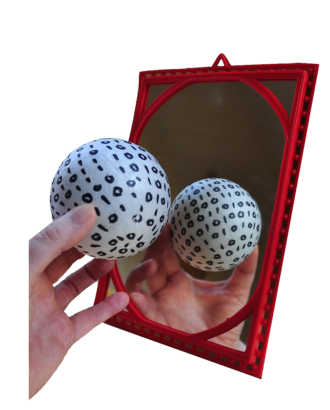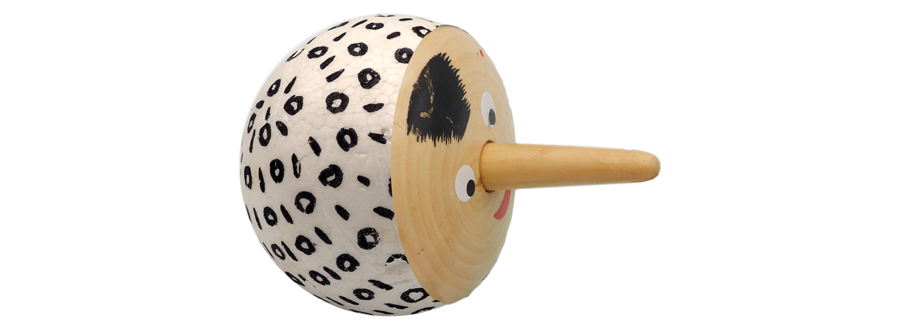- RESEARCH INTEGRITY
Research integrity
If scientific and scholarly research is to perform this role properly, research integrity is essential. Researchers who are not guided by the principles of honesty, scrupulousness, transparency, independence and responsibility risk harming both the quality and the trustworthiness of research | VSNU, 2018
Scientific integrity is essential for the proper functioning of science. Scientific integrity is an umbrella term for the behavioural norms to which a scientist should adhere to ensure that research is reliable and of good quality. In this section we will discuss the codes of conduct in which these types of norms are laid down.
Five principles
Standards of conduct for scientific integrity are laid down in codes of conduct such as The European Code of Conduct for Research Integrity (ALLEA, 2017) and The Netherlands Code of Conduct for Scientific Integrity (VSNU, 2018). The latter states that the following five principles form the basis of ethical research:
- Honesty
- Scrupulousness
- Transparency
- Independence
- Responsibility
In order to prevent research data from being invented, fabricated or falsified (intentionally manipulated or misinterpreted) and to stimulate reproducibility, a transparent researcher makes clear on which data he or she bases the conclusions and how these data were collected. If research data cannot be made openly accessible, the researcher must state the reasons why this is not possible.

Scientific integrity is also part of the research evaluations at universities and colleges:
Whether institutions do enough to ensure scientific integrity is taken seriously is part of periodic research evaluations.
The so called Standard Evaluation Protocol (SEP, VSNU, 2016) provides guidelines for evaluating research and research policy in Dutch universities. The protocol requires research units to present their policy with regard to safeguarding scientific integrity. A lot of attention is paid to the correct and open handling of research data. The following is said about this in the protocol:
The assessment committee considers the research unit’s policy on research integrity and the way in which violations of such integrity are prevented. It is interested in how the unit deals with research data, data management and integrity, and in the extent to which an independent and critical pursuit of science is made possible within the unit | VSNU, KNAW, NWO (2016)
Integrity and ethics
Integrity also means that - if applicable - the interests of research participants are taken into account. Privacy protection - which we discuss in more detail in chapter V - is part of that. Universities have many years of experience with ethical review committees and Universities of Applied Sciences are also setting up ethical review committees (van der Sande, 2018; Cardol, 2018, both sources are in Dutch).
Undertake ethical reviews where necessary; for example, by setting up one or more ethical committees and providing them with adequate support. These committees can provide researchers with binding or non-binding advice on issues such as the use and treatment of patients, human and animal test subjects, the possible risks of publishing data, the use of human tissue, risks to the environment or cultural heritage and potential conflicts of interest | VSNU, 2018
![]()
In the spotlight
ALLEA (2017). The European Code of Conduct for Research Integrity. Revised Edition. https://www.allea.org/wp-content/uploads/2017/05/ALLEA-European-Code-of-Conduct-for-Research-Integrity-2017.pdf
Cardol, T. (2018). Onderzoek hogescholen langs de ethische meetlat. [ScienceGuide] https://www.scienceguide.nl/2019/05/onderzoek-hogescholen-langs-de-ethische-meetlat/
Erasumus University Rotterdam (2016). Dilemma Game Professionalism and Integrity in Research. https://www.eur.nl/sites/corporate/files/24708_integriteitsspel_interactief_2016.pdf
KNAW (n.d.). Wetenschappelijke integriteit. Retrieved from https://www.knaw.nl/nl/thematisch/ethiek/wetenschappelijke-integriteit
NWO (n.d.). NWO-beleid wetenschappelijke integriteit. Retrieved from http://www.nwo.nl/beleid/wetenschappelijke+integriteit
Van der Sande (2018, 19 juni). Vrees voor ethische adviescommissies is ongegrond. [Scienceguide]. https://www.scienceguide.nl/2018/06/vrees-voor-ethische-adviescommissies-is-ongegrond/
Vereniging Hogescholen (2015). Brancheprotocol Kwaliteitszorg Onderzoek 2016– 2022. Kwaliteitszorgstelsel Praktijkgericht Onderzoek Hogescholen. https://www.vereniginghogescholen.nl/system/knowledge_base/attachments/files/000/000/489/original/BKO_2016-2021_-_okt_2015_%2812-1-2016_definitief%29.pdf?1452598575
VSNU (n.d.). Wetenschappelijke integriteit. https://www.vsnu.nl/wetenschappelijke_integriteit.html
VSNU (2016). Standard Evaluation Protocol 2015 – 2021 Protocol for Research Assessments in the Netherlands Amended version, 2016. http://www.vsnu.nl/files/documenten/Domeinen/Onderzoek/SEP2015-2021.pdf
VSNU (2018). Nederlands gedragscode wetenschappelijke integriteit. https://doi.org/10.17026/dans-2cj-nvwu

